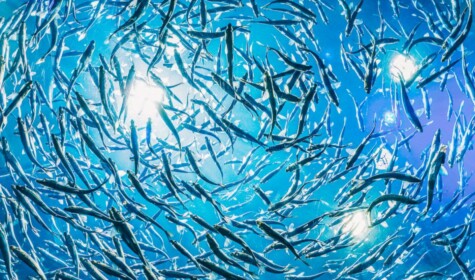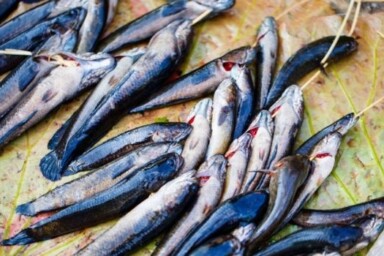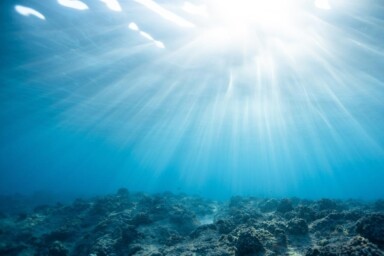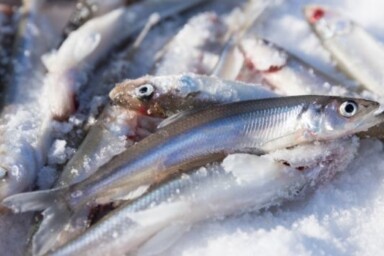As with many other aspects of government policy, overfishing and other fishing-related environmental issues are a real problem, but it’s not clear that government intervention is the solution.
Over three billion people around the world rely on fish as their primary source of protein. About 12% of the world relies on fisheries in some form or another, with 90% of these being small-scale fishermen — think a small crew in a boat, not a ship, using small nets or even rods, reels and lures. There are 18.9 million fishermen in the world, most of them falling under this same small-scale fisherman rubric.
Countries primarily concerned with serious efforts to curb overfishing are generally not the ones who are most guilty of overfishing. What this means is that the costs of overfishing are disproportionately borne by the countries least engaged in practices that are counter to efforts to make commercial fishing more sustainable while also promoting conservation of fish biodiversity.
These are important issues not just for commercial fishermen, but also those interested in questions of conservation and sustainability in general, as well as recreational fishermen and really anyone who uses fish as a food source. As the ocean goes, so goes the planet, so it is of paramount importance for everyone to educate themselves on what is driving overfishing, what its consequences are and what meaningful steps can be taken.
What is overfishing?
Overfishing is, in some sense, a rational reaction to increasing market needs for fish. Most people consume approximately twice as much food as they did 50 years ago and there are four times as many people on earth as there were at the close of the 1960s. This is one driver of the 30% of commercially fished waters being classified as being ‘overfished’. This means that the stock of available fishing waters are being depleted faster than they can be replaced.
There is a simple and straightforward definition of when an area is being ‘overfished’ and it’s not simply about catching too many fish. Overfishing occurs when the breeding stock of an area becomes so depleted that the fish in the area cannot replenish themselves.
At best, this means fewer fish next year than there are this year. At worst, it means that a species of fish cannot be fished out of a specific area anymore. This also goes hand-in-hand with wasteful forms of fishing that harvest not just the fish the trawler is looking for, but just about every other organism big enough to be caught in a net. Indeed, over 80% of fish are caught in these kinds of nets that sweep up everything into them.
There are a number of other wide-reaching consequences of overfishing:
- Increased algae in the water
When there are fewer fish in the water, algae doesn’t get eaten and there’s way more of it than there should be. This increases the acidity in the world’s oceans, which negatively impacts not only the remaining fish, but also the reefs and plankton.
- Destruction of fishing communities
Overfishing can completely destroy fish populations and the communities that once relied upon the fish that were there. This is particularly true for island communities. And it’s worth remembering that there are many isolated points on the globe where fishing isn’t just the driver of the economy, but also the primary source of protein for the population. When either or both of these disappear, the community disappears along with it.
- Tougher fishing for small vessels
Overfishing is mostly done by large vessels which makes it harder for smaller ones to meet their quotas. With over 40 million people around the world getting their food and livelihood from fishing, this is a serious problem.
- Ghost fishing
Ghost fishing is the term for what is basically littering in the ocean. Illegal or poorly regulated fishermen often abandon their tools, like nets, in the ocean. Not only does this create pollution, it also attracts scavenger fish or birds who are then ensnared in the garbage and can no longer fulfil their vital function elsewhere in the ocean.
- Species pushed to near extinction
When we hear that a fish species is being depleted, we often think it’s fine because they can be found somewhere else. However, many species of fish are being pushed close to extinction by overfishing, such as several species of cod, tuna, halibut and even lobster.
- Bycatch
If you’re old enough to remember people being concerned about dolphins caught in tuna nets, you know what bycatch is – it’s when marine life that is not being fished by commercial fishermen gets caught in their nets as a by-product. The possibility of bycatch increases dramatically with overfishing.
- Waste
Overfishing creates waste in the supply chain. Approximately 20% of all fish in the United States is lost in the supply chain due to overfishing. In the Third World. this rises to 30% thanks to a lack of available freezing devices. What this means is that, even though there are more fish being caught than ever, there is also massive waste of harvested fish.
- Mystery Fish
Because of overfishing, there is a significant amount of fish at your local fish market and on the shelves of your local grocery store that aren’t what they are labelled as. Just because something says that it’s cod doesn’t mean that it actually is. To give you an idea of the scope of this problem, only 13% of the ‘red snapper’ on the market is actually red snapper. Most of this is unintentional due to the scale of fishing done today, but much of it is not, hiding behind the unfortunate realities of mass scale fishing to pass off inferior products to unwitting customers.
So why is overfishing happening? There are a variety of factors driving it:
- Regulation: Regulations are incredibly difficult to enforce even when they are carefully crafted, which they often are not. The worst offenders have little regulations in place and none of these regulations apply in international waters, which are effectively a Wild West.
- Unreported fishing: Existing regulations force many fishermen to do their fishing ‘off the books’ if they wish to turn a profit. This is especially true in developing nations.
- Mobile processing: Mobile processing is when fish are processed before even returning to port. They are canned while still out at sea. Canned fish is increasingly taking up the fish consumption market at the expense of fresh fish.
- Subsidies: Subsidies encourage overfishing because the more fish you catch, the more money you get. Indeed, according to the World Wildlife Fund, subsidies drive illegal fishing, which is closely tied with piracy, slavery and human trafficking.
More on government subsidies
The University of British Columbia conducted a study that found that $22 billion (63% of all fishing subsidies) went toward subsidies that encourage overfishing. Subsidies are often directed at reducing the costs for mega-fishing companies — things like paying for their massive fuel budgets, the gear they need to catch fish or even the vessels themselves. This effectively allows for massive commercial fishing operations to enter the market or recapitalise at rates significantly below that of the market, disproportionately favouring them over their smaller competitors.
It is this advantage that large mega fishing companies enjoy that is a primary driver of overfishing and unsustainable fishing practices. The end result of this is not just depleted stocks, but also lowered yields due to long-term overfishing, as well as lowered costs of fish at market, which has some advantages for the consumer, but also makes it significantly harder for smaller operations to turn a profit.
Such government subsidies could provide assistance to smaller fisherman, but are generally structured in a way that favours consolidation of the market and efforts counterproductive to conservation efforts.
Just how bad is overfishing?
Overfishing is happening at biologically unsustainable levels. Pacific bluefin tuna has seen a 97% decline in overall population. This is important because the Pacific bluefin tuna is one of the most important predators in the ocean food chain. If it goes extinct the entire aquaculture will be irreparably disturbed.
The first fish that disappear from an ecosystem are larger fish with a longer lifespan that reach reproductive age later in life. These are also the most desirable fish on the open market. When these fish disappear, the destructive fishing operations do not leave the area, they simply move down the food chain to less desirable catches like squid and sardines. This is called ’fishing down the web’ and it slowly destroys the entire ecosystem. removing first the predator fish and then the prey.
What are some alternatives to government-driven overfishing?
There is a need to balance the importance of fish as a global protein source with a long-term view of the ecosystem, so that we have as many fish tomorrow as there are today and thus, a sustainable model for feeding the world and providing jobs. One way to do this would be to tie subsidies to conservation and sustainability efforts, rather than simply writing cheques to large commercial fishing operations to build new boats and buy new equipment. Such a scheme would also prize smaller scale operations over larger ones. A more diversified source of the world’s fish would also be more resilient.
Territorial use rights in fisheries management (TURF) means individual fisherman or collectives of them are provided with long-term rights to fish in a specific area. This means that they have skin in the game. They don’t want to overfish the area because to do so would be to kill the goose that laid the golden egg. They have a vested, long-term interest in making sure that there is no overfishing in the fisheries that have been allotted to them.
Fishermen with TURF are allowed to catch as much as they like. It is assumed that sustainability is baked into the equation because the fishermen with rights want to preserve the fishing not just for the next year, but for the next generation and the one after that. This model has been used successfully by Chile to prevent overfishing and create sustainability. It is a market-driven model that prizes small producers over massive, transnational conglomerates.
While it’s nice to support the little guy over Big Fishing, especially in relation to sustainability and conservation efforts, there’s another, perhaps more important and direct reason to support reforms designed to eliminate overfishing: food security. That’s a big deal for people in developed, first world countries, but a much bigger deal in developing countries. When major protein sources are depleted forever, there will be intensified competition for the resources that remain. This also creates unrest in the countries that are less able to compete in a global market due to issues of capital and scale. Even if you’re not concerned with overfishing, overfishing and the problems it creates will soon be on your doorstep unless corrective measures are taken before it’s too late.







